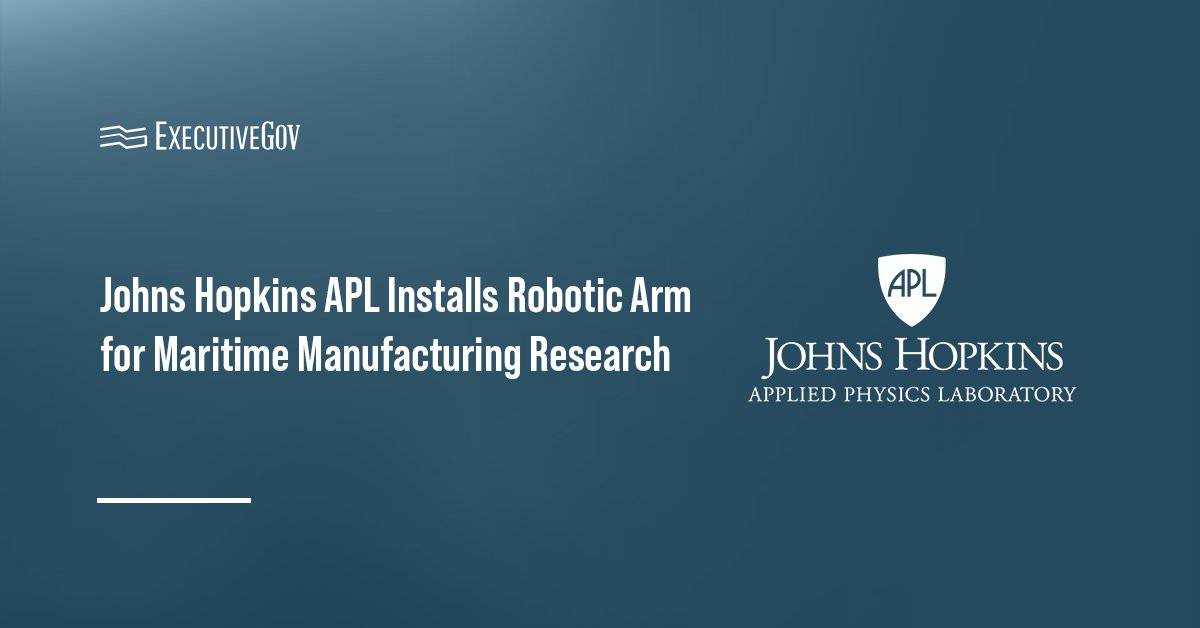The Johns Hopkins Applied Physics Laboratory has completed the installation of a RAMLAB MaxQ industrial robot in its advanced manufacturing facility to enhance research on maritime industrial resilience and strengthen the U.S. maritime industrial base.
The robotic arm will evaluate and validate repair and manufacturing methods and explore ways to make these capabilities available to small businesses and industry partners, Johns Hopkins APL said Wednesday.
“With this new tool, APL can validate and refine additive manufacturing techniques that make repair more practical for our government and industry partners, and ultimately improve the agility and resiliency of the maritime industrial base,” said James Borghardt, APL’s Expeditionary Logistics program manager.
How Will the APL Robotic Arm Support Maritime Repairs?
The six-foot radius robot leverages wire arc additive manufacturing to handle large-scale structural and mechanical parts in compact spaces. Integrated sensing, scanning and adaptive controls enable the arm to identify issues in irregular or damaged components, while human operators remain essential to maintain precision and ensure reliability.
APL’s research aims to make repairs faster, more precise and cost-effective, reducing reliance on costly part replacements. The project builds on APL’s ongoing programs in deployable directed energy deposition, laser powder bed fusion, materials discovery and collaboration with industry to advance U.S. maritime manufacturing standards.





